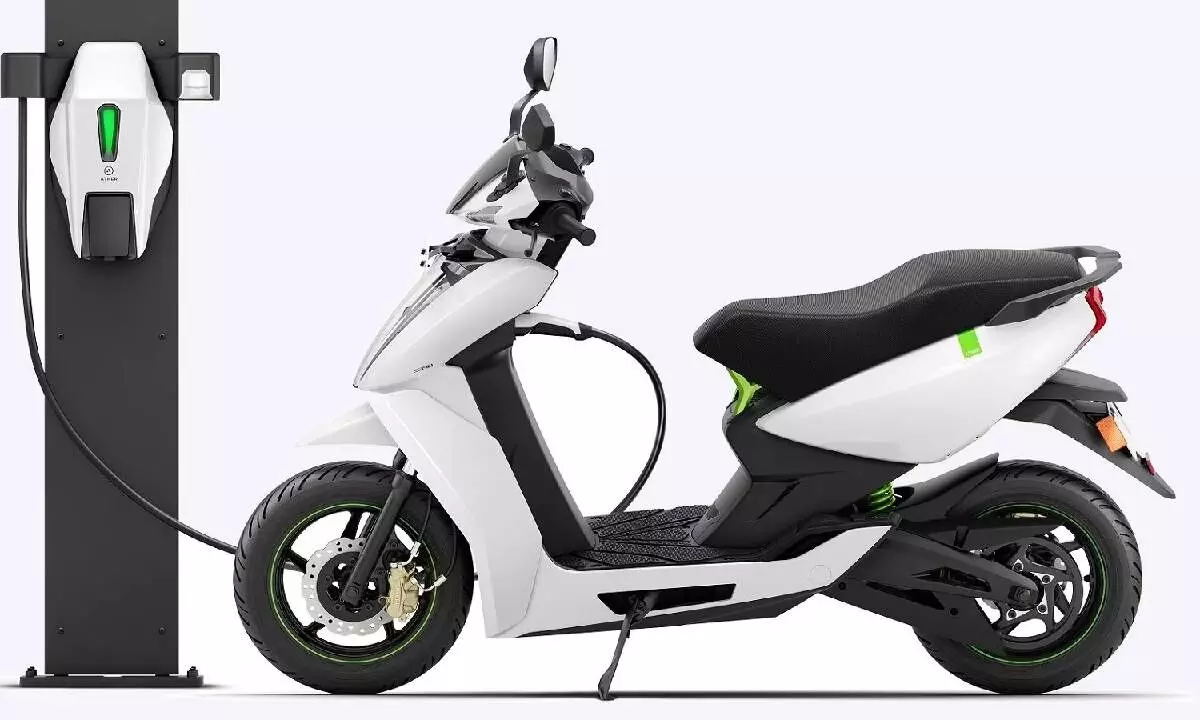EVs, renewables, semiconductors: Triple engine to power transition
As India aspires to become a $5 trillion economy by 2025, sunrise sectors like Electric Vehicles (EVs), renewable energy, semiconductors, electronics manufacturing and more – which have the potential to transform the country’s economic landscape -- have been given a renewed focus by the government
image for illustrative purpose

New Delhi, Feb 3: As India aspires to become a $5 trillion economy by 2025, sunrise sectors like Electric Vehicles (EVs), renewable energy, semiconductors, electronics manufacturing and more – which have the potential to transform the country’s economic landscape -- have been given a renewed focus by the government.
The Rs 1 lakh crore corpus, to provide long-term, interest-free financing for the tech-savvy youth is a positive measure as access to capital is a critical factor to support innovation and growth in sunrise industries.
Presenting the Interim Budget in the Lok Sabha last week, Finance Minister Nirmala Sitharaman said that this corpus will provide "long-term low or nil interest rates so that the youth can innovate at scale."
“For our tech-savvy youth, this will be a golden era. A corpus of Rs 1 lakh crore will be established with a 50-year interest-free loan. The corpus will provide long-term financing or refinancing with long tenors and low or nil interest rates,” said the Finance Minister.
This will encourage the private sector to scale up research and innovation significantly in sunrise domains.
“We need to have programmes that combine the powers of our youth and technology,” she said.
Lieutenant-General Dr SP Kochhar, Director General, Cellular Operators Association of India (COAI), said that the long-term, interest-free or low interest rate loans and focus on deep technology will “further encourage the private sector to scale up research and innovation.”
Ankur Bansal, Co-Founder and Director, BlackSoil Capital, said the move will encourage entrepreneurship.
“In addition, such initiatives will attract investment from the private sector and foreign investors, driving growth and propelling India towards self-reliance,” said Bansal.
The Finance Minister said that a new scheme will be launched to strengthen the deep-tech sector for Defence purposes.
Peeyush Vaish, Partner and TMT Industry Leader, Deloitte India, said that the large interest-free outlay will further boost our tech start-up ecosystem in emerging areas around 5G, generative AI, agritech and healthtech.
“The Rs 1 lakh crore corpus that will be made available with 50-year interest-free (long-term financing or refinancing) to encourage the private sector to scale up R&D in Sunrise domain is a welcome move for the sector. This will push India to the forefront of innovation and skill enhancement,” said Vaish.
Neeraj Bansal, Co-Head and COO, India Global, KPMG in India, said the corpus will help in improving India’s research and innovation ecosystem, critical to the country’s aspirations of being a $5 trillion economy.
The government will also expand and strengthen the EV ecosystem by supporting manufacturing and charging infrastructure.
The focus on boosting EV charging stations will drive sales of both vehicles and charging infrastructure.
Kanishk Maheshwari, Co-Founder & MD, Primus Partners, said that the new scheme for bio-manufacturing and biofoundry is a welcome step towards promoting sustainable and green manufacturing practices.
"It augurs well for both large and MSME units and should enable fast adoption of green manufacturing practices in the manufacturing process," he said.
India is making progress in building its EV charging infrastructure in order to phase out diesel vehicles in a stipulated time-frame but there is still a long way to go.
Currently, the ratio of EVs to charging stations is nearly 9:1, while the ideal ratio should be 4:1, meaning four cars per one charging point.
According to industry experts, most of the public charging stations are currently available in Tier 1 cities and some highways.
"However, for mass EV adoption to occur, charging infrastructure must be accessible throughout the country to encourage people to choose EVs for long-distance travel," senior analyst Soumen Mandal from Counterpoint Research told IANS.
India is likely to have 10,000 public charging stations by the end of 2025.
"Furthermore, in order to achieve a 30 per cent EV adoption rate, India must build more than 300,000 public charging stations by 2030," Mandal said.
Additionally, government initiatives like the Faster Adoption and Manufacturing of (Hybrid &) Electric Vehicles (FAME) scheme further incentivise EV adoption.
Another sunrise sector is clean energy, which promises a golden opportunity for companies to develop cutting-edge solutions to innovate further solar panels, wind turbines, and energy storage systems.
The industry hailed the government's latest push towards ‘green growth' with a new scheme of bio-manufacturing and bio-foundry that will foster sustainable mobility.
The Government said that such steps will provide environment-friendly alternatives such as biodegradable polymers, bio-plastics, bio-pharmaceuticals and bio-agri-inputs.
“This scheme will also help in transforming today’s consumptive manufacturing paradigm to the one based on regenerative principles,” said Sitharaman.
According to Neeraj Bansal the emphasis on green energy, announcement of rooftop solarisation and the fostering of the EV ecosystem underline the government’s priority on sustainability.
Mayank Bindal, Founder and CEO, Snap E Cabs (EV Cabs), said the announcement of a new scheme for bio-manufacturing “underscores the government's dedication to promoting green growth and environmental stewardship.”
“The government’s continued focus on the EV ecosystem is indeed a pragmatic step forward and will continue to help India succeed in achieving its long-term decarbonisation objectives. This is an exciting time for the country's green industrial and economic transition,” said Manoj Nair, Head of India GDC, Fujitsu India.
In order to achieve the target of net zero carbon emissions by 2070, there has been an emphasis on a green economy with focus on expansion of solar energy, bio fuels and charging infrastructure which will raise the need for green skills.

